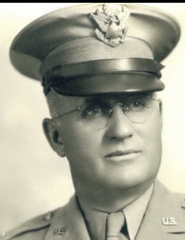Miles Visits Picturesque City of Bari
Yanks Anxious to Go Home, but Are Making Best of Situation
By Frank Miles
(IDPA War Correspondent)
Bari, Italy -- (IDPA) -- Bari is a picturesque but rather dusty city. The buildings of old architecture have been run down since Italy entered World War II. Now the residents have neither the means nor the initiative to rebuild rapidly.
Possibly it's the hot weather that brings 'em out but it appears that Bari has a horde of children, thousands of whom need faces washed. Many beg. Many followed soldiers smoking cigarettes to leap for butts. Fights over those free smokes are frequent.
Most of the officers and men of the army here are eager to go home but they are enjoying themselves under the conditions. Officers had a club. Sergeants have a club. There's a CAU club for corporals and under. The Red Cross has club houses which furnish thousands recreation.
A great sight here is a huge building amidst acres of army vehicles being reconditioned. It is estimated that 26,000 trucks and jeeps and other cars will be put in shape at the plant to be used in the Pacific or elsewhere.
I have again visited the grave of my younger son, Second Lieut. William B. Miles, who was killed in action while flying as a first pilot of a Liberator over Elba May 17, 1944.
There were 2,149 graves under white crosses of Christ and star of David in the beautiful U.S. military cemetery three miles east of this port on the Adriatic sea. Among them were mortal bivouacs of 15 other Iowans who made the supreme sacrifice the Mediterranean theater. War department regulations forbid listing them but I know their names.
I saw eight cemeteries in Belgium and France and if relatives of any one sleeping in those or that near Bari desires information when I am again at home I shall be pleased to furnish what I can.
I was watching a line of GIs cued to enter an army exchange coffee shop. A bright youngster upon seeing my war correspondent insignia asked me where I was from . When I replied, "Iowa", he said the knew a Hawkeye, who had just gone inside.
"I'll send him out," he volunteered.
Pvt. Byron W. Brown, Sioux City emerged.
"Been in the army three years and how I wish I could get back to my Iowa farm," he said.
The soldier was in a bombing crew which came overseas last January. His wife and 2 year-old daughter are in Sioux City.
I ran across Second Lieut. Vernon Reece, Des Moines, a native of New Providence, Ia., where he was graduated from high school. He didn't know whether he was going home or to the Pacific. After he is discharged he plans to start a turkey farm near Denver, Colo. Reece was a first Liberator pilot in the Fifteenth air force.
One afternoon in Paris, enroute to Bari, I met five Iowans in a crowd of sightseeing doughboys. They were Pfc. Edwin Jensen, Lansboro; T-5 Irvin Nervig, Brooklyn; Corp. Art Short, Olwein; T-5 Mervin Rounds, Oakland; and Corp. Kenneth Hendricks, Deloit. Jensen, an infantry man, had been thru Oran , Italy, France and Germany. He was a farmer before he got into service and expected to be one after doffing the uniform. Rounds had been overseas 21 months and Hendricks 18 months.
Source: Quad City Times, July 19, 1945
![]()

